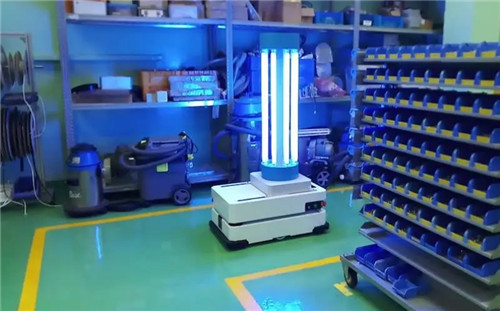In the fight against COVID-19, Chinese medical equipment supplier Sunay Healthcare Supply secured an order of autonomous UVC disinfection robots for hospital use from Danish-based company UVD Robots in February.
UVD Robots won the IERA award, essentially the robotics industry’s Oscars, in 2019. The company currently sells its robots in more than 40 countries. In addition to operating in the European and U.S. healthcare markets, UVD Robots is also supplying autonomous UV disinfection robots to hospitals in Asia.
Hot on the heels of UVD Robot’s success, a Singapore-based company also released its own lineup of autonomous UV disinfection robots aimed at eliminating the coronavirus.
Singapore-based SGX-listed Digital Safety (DiSa) released a lineup of autonomous UV disinfection robots, the first of their kind in the country, in March; the production of these robots coincided with the COVID-19 outbreak. DiSa claimed a two-month development time.

(Image: DiSa)
DiSa did not make any major technological breakthroughs with its new lineup, which are autonomous, ground-based, self-driving robots with a tube of ultraviolet light attached. They work by shining a short wavelength UVC light on microorganisms such as bacteria and viruses, which are then killed by the UVC radiation.
DiSa’s robots are able to autonomously navigate throughout a given room while eliminating microorganisms with UVC lights. Their laser sensors allow them to map out the room’s layout and plan routes for automatic, area-by-area disinfection.
The autonomous disinfection robots are capable of sensing and making their way around physical obstructions without external help, but as effective as they may be, these robots cannot be deployed in environments with human presence because UVC radiation is harmful for the human body. DiSa estimates a 15-minute disinfection time per room per robot, though the company does not specify room size.
Worth noting is the fact that despite the advantage they offer, autonomous UV disinfection robots are still unable to provide total protection against COVID-19. For instance, they cannot disinfect areas shaded from UVC lights.
In any case, DiSa is expected to market its new lineup of robots to clients, including retail and commercial outlets, soon, while at the same time developing a smaller iteration for household use, to be released in 2H20.












